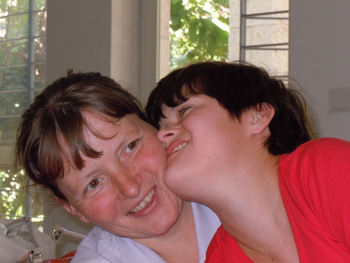
Valentina recently joined our community. We met her in our Career Mentoring Group when we were talking about about “Working in different cultures”. We immediately understood that Valentina has a privileged relationship with diversity because she breathes it every day in her beautiful family. Do read her moving story…
Valentina was born in Marsala, Italy, and lives in Paris with her husband, who has been deaf from birth, and her two adopted children from Burundi.
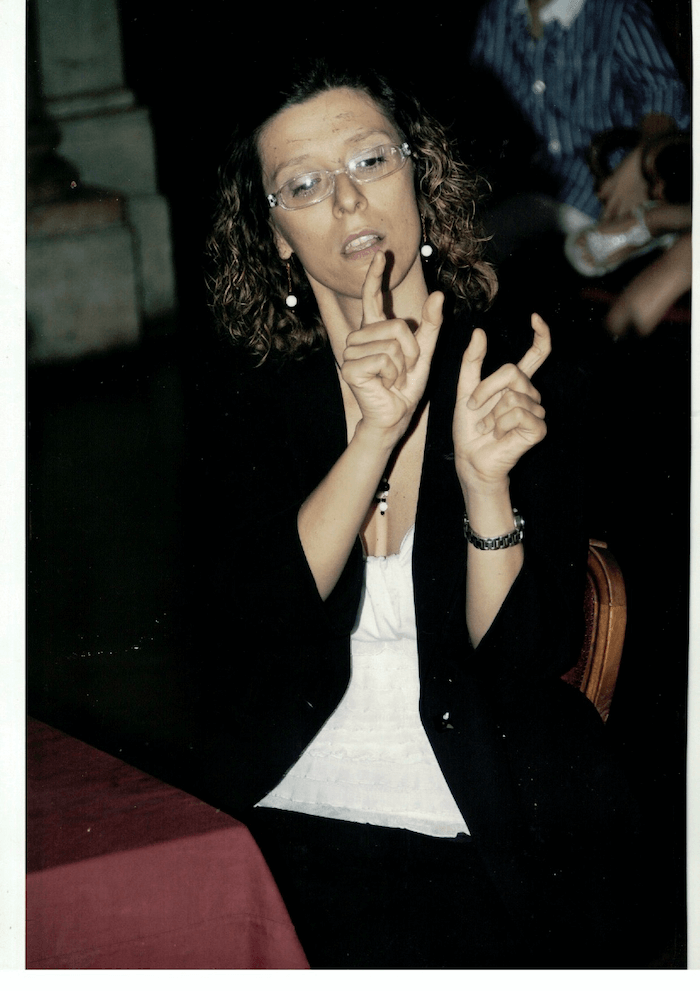 I call her from Geneva. From the few hints that she shared during our recent meeting, I know that she has a unique story. And I want to share it with Expatclic.
I call her from Geneva. From the few hints that she shared during our recent meeting, I know that she has a unique story. And I want to share it with Expatclic.
With exceptional sympathy and warmth, Valentina tells me that it all started when she discovered Italian Sign Language. She was living in Sicily at the time, and took a course to learn it. A course that changed her life.
Her work in the world of the deaf began in Rome, with a group of children: an exciting job, but, as unfortunately often happens, underpaid and full of challenges. Valentina decided to move to Venice to study at the Ca’ Foscari University: the only one in Italy that considers Italian Sign Language to be as valid as any other. Valentina graduated and became a sign language interpreter.
In Venice she fell in love, and married Mirko, who shortly after their wedding, won a scholarship to the Gallaudet University in Washington, the only university in the world where students learn and live with American Sign Language.
At this point in our interview, I begin to fidget in my chair because I sense that Valentina is about to share privileged information with me, opening doors to a world I know little, if anything, about.
She goes on to tell me that after his Gallaudet experience, Mirko received a proposal to move to Paris to study for a Master’s and was offered a job. Valentina, who had stayed in Venice, chose a six-month Erasmus course in Paris, which gave her a focus to start her French experience.
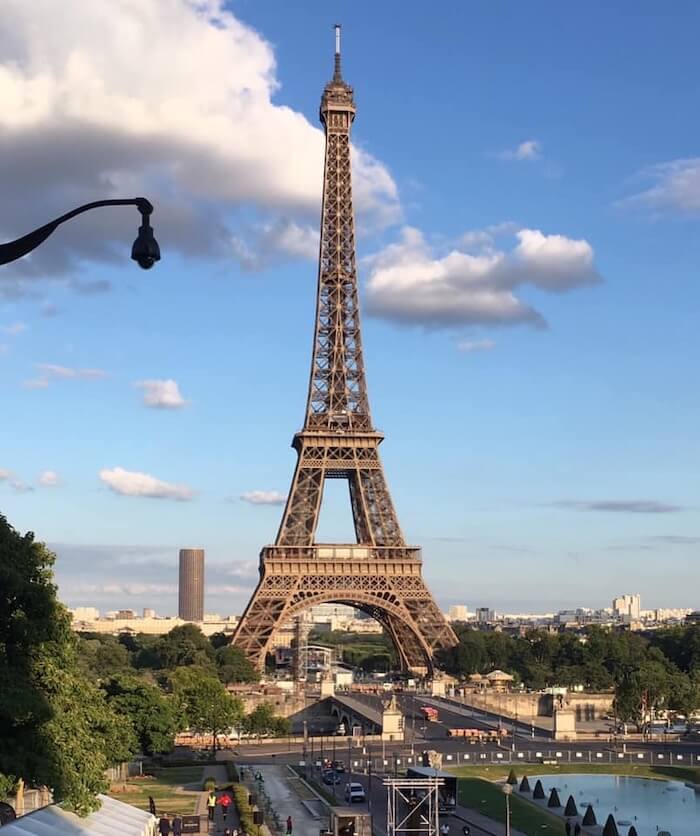 This turned out to be a lucky choice, because the early days were not easy at all. She had doubts about Paris from the start, and soon started feeling the repercussions of being far from home, and the linguistic and cultural disorientation brought on by the move.
This turned out to be a lucky choice, because the early days were not easy at all. She had doubts about Paris from the start, and soon started feeling the repercussions of being far from home, and the linguistic and cultural disorientation brought on by the move.
Fortunately, during the Erasmus course, Valentina met a professor who suggested she do a doctorate. This experience broadened her already thorough knowledge of sign languages, linguistic mechanisms and the atmosphere that pervades the deaf community.
Thanks to our conversation, Valentina has made me reflect on many things that I hadn’t thought about, or better, that I simply didn’t know. For example, I was unaware that sign languages were used in social circles and in cultural productions until 1880, when the Milan Congress in September of that year introduced a series of restrictions on its use.
I did not know (learning this gave me goosebumps) that in many cases sign languages have been banned, and that medical-scientific trends have motivated this prohibition with the slogan “the sign kills the word”. Valentina tells me that the community of the deaf feels, justifiably, that they are a linguistic minority. Italian Sign Language, like other sign languages in the world, are languages in every respect, although, of course, they pose different challenges for those who learn them — for example, having to be spatially organized.
I am intrigued by the relationship between sign language and the culture from which it emanates. Valentina explains that in sign languages in Western cultures, the future is generally placed in front of the speaker, while the past is indicated using the space behind the back. In other cultures, such as those of Asia, the position is the other way around.
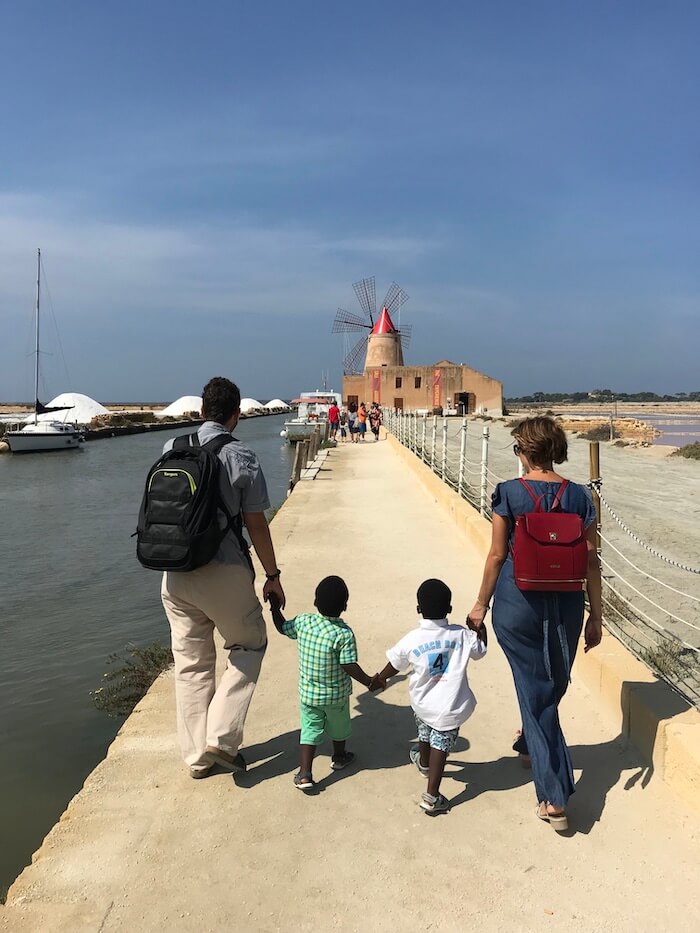 However, I cannot linger over these fascinating details, because there is something else I want to discuss with Valentina: her Italian-Burundian twins. Shortly after moving to Paris, Valentina and Mirko started the procedure for international adoption. They expressed their preference for adopting brothers, and the request was granted. Two years ago, the family opened up to further diversity, welcoming two beautiful twins, Jean Lucas and Johnathan.
However, I cannot linger over these fascinating details, because there is something else I want to discuss with Valentina: her Italian-Burundian twins. Shortly after moving to Paris, Valentina and Mirko started the procedure for international adoption. They expressed their preference for adopting brothers, and the request was granted. Two years ago, the family opened up to further diversity, welcoming two beautiful twins, Jean Lucas and Johnathan.
I am fascinated by the scenario that opens up in terms of communication in Valentina’s family, now enriched by two little boys who speak Kirundi. I ask her how they organized themselves with this diversity in the family. The first thing they did was to spend six months in Italy with the little ones, to give them a foundation — and who knows, maybe the parents’ common roots — and allow them to familiarize themselves with the spoken Italian language.
But they needed Italian Sign Language too, to talk to Dad. And here Valentina tells me with a smile that they are learning it quickly, and well, even if now, in Paris, they are dealing with yet another language, that of school and socializing.
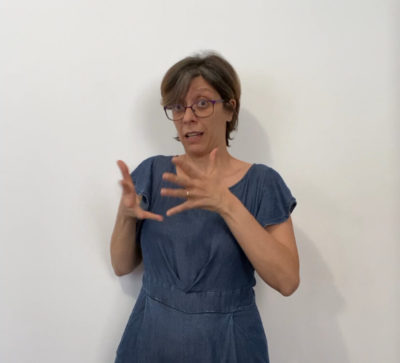 Valentina does research on sign languages, while she continues to study spoken French and French Sign Language with the aim of becoming a sign language interpreter in France, too. To do this, she must master both languages perfectly.
Valentina does research on sign languages, while she continues to study spoken French and French Sign Language with the aim of becoming a sign language interpreter in France, too. To do this, she must master both languages perfectly.
She is now happy in France, and she feels grateful. Her husband is a researcher at the CNRS, which, she tells me, would be absolutely unthinkable in Italy. She is embittered by the fact that our beautiful country is so provincial in every field, with its attitude to diversity causing constant trauma to its inhabitants. She tells me a couple of anecdotes from her vacations with her children, one notable one when a woman ran after them, smartphone in hand, on a public square, to take a selfie with them because “they are so beautiful“.
People like Valentina show us that diversity is richness, that when you love everything is possible and that there is no disability or skin color when you think with empathy in your heart.

